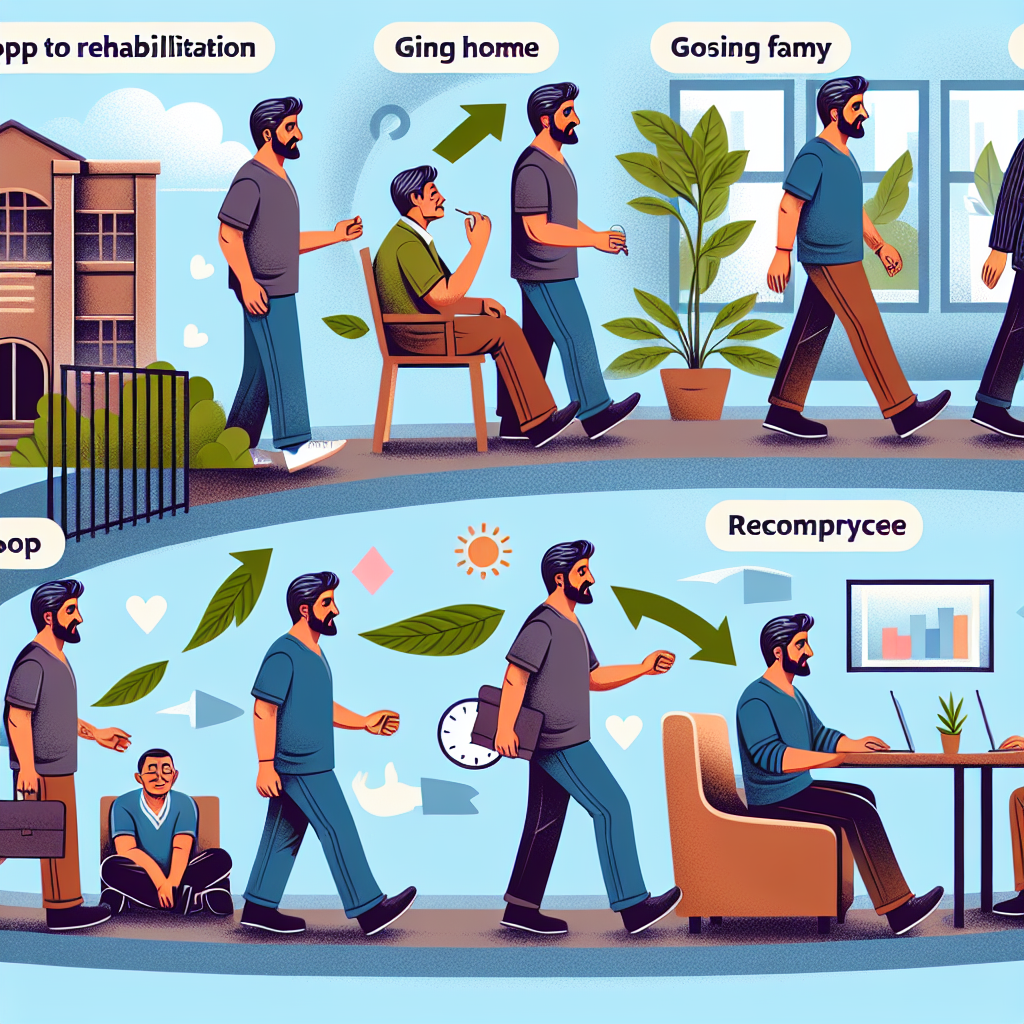-
Table of Contents
“Therapy: The Heartbeat of Heroin Addiction Recovery”
Introduction
Heroin addiction is a pervasive and devastating condition that affects millions of individuals worldwide, leading to severe physical, psychological, and social consequences. The role of therapy in heroin addiction recovery is crucial, as it provides a structured and supportive environment for individuals to address the underlying issues contributing to their substance use. Therapy encompasses a range of approaches, including cognitive-behavioral therapy (CBT), contingency management, and motivational interviewing, each tailored to meet the unique needs of the individual. These therapeutic interventions aim to modify harmful behaviors, enhance coping strategies, and foster resilience, ultimately guiding individuals towards sustained recovery and improved quality of life. By addressing both the psychological and emotional aspects of addiction, therapy plays an indispensable role in the comprehensive treatment of heroin addiction, offering hope and a pathway to long-term sobriety.
Understanding The Importance Of Therapy In Heroin Addiction Recovery
Therapy plays a pivotal role in the recovery journey of individuals grappling with heroin addiction. Understanding its importance can illuminate the path to a healthier, more fulfilling life. Heroin addiction is a complex and multifaceted issue, often intertwined with emotional, psychological, and social factors. Therefore, addressing it requires a comprehensive approach, and therapy stands as a cornerstone in this multifaceted treatment plan.
Initially, therapy provides a safe and supportive environment where individuals can explore the underlying causes of their addiction. Many people turn to heroin as a means of coping with unresolved trauma, stress, or mental health disorders. Through various therapeutic modalities, such as cognitive-behavioral therapy (CBT) or dialectical behavior therapy (DBT), individuals can begin to understand and address these root causes. This understanding is crucial because it empowers them to develop healthier coping mechanisms, reducing the likelihood of relapse.
Moreover, therapy helps in rebuilding self-esteem and self-worth, which are often eroded by the cycle of addiction. Heroin addiction can lead to feelings of shame, guilt, and hopelessness. In therapy, individuals are encouraged to confront these negative emotions and replace them with positive affirmations and self-compassion. This process is not only healing but also transformative, as it fosters a renewed sense of identity and purpose.
In addition to individual therapy, group therapy offers a unique and invaluable dimension to recovery. Sharing experiences with others who are on a similar journey can create a sense of community and belonging. This collective support is instrumental in breaking the isolation that often accompanies addiction. Group therapy sessions provide a platform for individuals to learn from each other, share coping strategies, and offer mutual encouragement. The bonds formed in these groups can be a source of strength and motivation, reinforcing the commitment to sobriety.
Family therapy is another critical component, as addiction affects not just the individual but also their loved ones. Family dynamics can play a significant role in either perpetuating or alleviating addiction. Through family therapy, members can learn to communicate more effectively, set healthy boundaries, and support their loved one’s recovery without enabling destructive behaviors. This holistic approach ensures that the entire support system is aligned and working towards the common goal of recovery.
Furthermore, therapy equips individuals with practical skills to navigate the challenges of everyday life without resorting to heroin use. Techniques such as mindfulness, stress management, and emotional regulation are integral parts of the therapeutic process. These skills are essential for maintaining long-term sobriety, as they help individuals manage triggers and cravings in a constructive manner.
The journey of recovery is often fraught with setbacks and challenges, but therapy provides a consistent source of guidance and support. It helps individuals stay focused on their goals, celebrate their progress, and learn from their setbacks. The therapeutic relationship itself can be a powerful motivator, as the trust and rapport built with a therapist can inspire individuals to persevere even when the road ahead seems daunting.
In conclusion, therapy is an indispensable element in the recovery from heroin addiction. It addresses the psychological and emotional aspects of addiction, fosters personal growth, and strengthens support systems. By embracing therapy, individuals can embark on a transformative journey towards healing and reclaim their lives from the grip of addiction. The path to recovery is not easy, but with the right therapeutic support, it is undoubtedly achievable.
Types Of Therapy Used In Heroin Addiction Treatment
Therapy plays a crucial role in the recovery process for individuals battling heroin addiction. Various types of therapy are employed to address the multifaceted nature of addiction, each offering unique benefits that contribute to a comprehensive treatment plan. Cognitive Behavioral Therapy (CBT) is one of the most widely used approaches in heroin addiction treatment. This form of therapy helps individuals identify and change negative thought patterns and behaviors that contribute to their addiction. By learning to recognize triggers and develop healthier coping mechanisms, patients can better manage their cravings and reduce the risk of relapse.
Another effective therapeutic approach is Dialectical Behavior Therapy (DBT), which is particularly beneficial for individuals who struggle with emotional regulation and interpersonal relationships. DBT combines cognitive-behavioral techniques with mindfulness practices, helping patients develop skills to manage stress, regulate emotions, and improve their relationships with others. This holistic approach not only addresses the addiction itself but also the underlying emotional issues that often accompany it.
Motivational Interviewing (MI) is another valuable tool in the arsenal of addiction treatment therapies. This client-centered approach focuses on enhancing an individual’s motivation to change by exploring and resolving ambivalence. Through empathetic and non-judgmental dialogue, therapists help patients articulate their own reasons for wanting to overcome their addiction, thereby fostering a sense of empowerment and self-efficacy.
Family therapy is also an integral component of heroin addiction treatment. Addiction often affects not just the individual but also their loved ones. Family therapy aims to repair and strengthen relationships, improve communication, and create a supportive home environment conducive to recovery. By involving family members in the treatment process, therapists can address any co-dependency issues and educate them on how to best support their loved one’s journey to sobriety.
Group therapy offers another layer of support, providing a sense of community and shared experience. In a group setting, individuals can share their struggles and successes with others who understand what they are going through. This collective environment fosters a sense of belonging and reduces feelings of isolation, which can be particularly powerful in the recovery process. Group therapy also allows individuals to learn from the experiences of others and gain new perspectives on their own challenges.
In addition to these traditional forms of therapy, holistic approaches such as art therapy, music therapy, and equine therapy are increasingly being incorporated into addiction treatment programs. These therapies offer alternative ways for individuals to express themselves, process their emotions, and find healing. For example, art therapy allows patients to explore their feelings and experiences through creative expression, which can be particularly therapeutic for those who find it difficult to articulate their emotions verbally.
Moreover, mindfulness-based therapies, such as Mindfulness-Based Stress Reduction (MBSR) and Mindfulness-Based Cognitive Therapy (MBCT), are gaining recognition for their effectiveness in addiction treatment. These therapies teach individuals to stay present in the moment and develop a non-judgmental awareness of their thoughts and feelings. By cultivating mindfulness, patients can better manage stress and reduce the likelihood of relapse.
In conclusion, the diverse array of therapies available for heroin addiction treatment underscores the importance of a personalized and holistic approach to recovery. Each type of therapy offers unique benefits that address different aspects of addiction, from cognitive and emotional challenges to social and familial dynamics. By integrating multiple therapeutic modalities, treatment programs can provide a comprehensive and supportive environment that empowers individuals to overcome their addiction and build a healthier, more fulfilling life.
The Benefits Of Group Therapy For Heroin Addiction Recovery
Group therapy plays a pivotal role in the recovery process for individuals battling heroin addiction. It offers a unique blend of support, understanding, and shared experiences that can be incredibly beneficial for those seeking to overcome their dependency. One of the most significant advantages of group therapy is the sense of community it fosters. When individuals come together in a group setting, they realize they are not alone in their struggles. This shared experience can be profoundly comforting and can help reduce feelings of isolation and shame that often accompany addiction.
Moreover, group therapy provides a platform for individuals to share their stories and listen to others. This exchange of experiences can be enlightening and empowering. Hearing about the challenges and triumphs of others can offer new perspectives and coping strategies that one might not have considered. It also helps to normalize the recovery process, making it clear that setbacks and relapses are part of the journey and not a sign of failure. This understanding can be crucial in maintaining motivation and commitment to recovery.
In addition to emotional support, group therapy also offers practical benefits. It can be a source of valuable information about addiction and recovery. Facilitators, who are often trained therapists or counselors, can provide insights into the nature of addiction, the impact it has on the brain and body, and effective strategies for managing cravings and avoiding triggers. This knowledge can empower individuals to take control of their recovery and make informed decisions about their treatment.
Furthermore, group therapy can help individuals develop essential social skills. Addiction often leads to strained relationships and social isolation. In a group setting, individuals have the opportunity to practice communication, empathy, and conflict resolution in a safe and supportive environment. These skills are not only crucial for maintaining sobriety but also for rebuilding relationships and creating a fulfilling life in recovery.
Another significant benefit of group therapy is the accountability it provides. When individuals commit to attending regular group sessions, they are making a commitment to their recovery and to their peers. This sense of accountability can be a powerful motivator to stay on track and avoid relapse. Knowing that others are counting on them can encourage individuals to stay committed to their recovery goals.
Moreover, the structure of group therapy can provide a sense of stability and routine, which is often lacking in the lives of those struggling with addiction. Regular meetings can create a sense of normalcy and predictability, which can be comforting and grounding. This structure can also help individuals develop a routine that includes other healthy activities, such as exercise, hobbies, and self-care practices.
In conclusion, the benefits of group therapy for heroin addiction recovery are multifaceted and profound. It offers emotional support, practical knowledge, social skills development, accountability, and structure. By participating in group therapy, individuals can find a sense of community and understanding that is often missing in their lives. They can learn from the experiences of others, gain valuable insights into their own addiction, and develop the skills and strategies needed to maintain sobriety. Ultimately, group therapy can be a powerful tool in the journey to recovery, providing the support and encouragement needed to overcome addiction and build a healthier, more fulfilling life.
How Cognitive Behavioral Therapy (CBT) Aids In Heroin Addiction Recovery
Cognitive Behavioral Therapy (CBT) has emerged as a cornerstone in the treatment of heroin addiction, offering a structured and effective approach to recovery. This therapeutic method focuses on identifying and changing negative thought patterns and behaviors, which are often deeply ingrained in individuals struggling with addiction. By addressing these underlying issues, CBT provides a pathway to not only overcoming heroin dependence but also achieving long-term sobriety and improved mental health.
One of the primary ways CBT aids in heroin addiction recovery is by helping individuals recognize the triggers that lead to drug use. These triggers can be emotional, such as feelings of stress or depression, or situational, like being in environments where drug use is prevalent. Through CBT, individuals learn to identify these triggers and develop coping strategies to manage them without resorting to heroin. This proactive approach empowers individuals to take control of their lives and make healthier choices.
Moreover, CBT emphasizes the importance of setting realistic and achievable goals. For someone recovering from heroin addiction, this might include goals related to personal health, relationships, or career aspirations. By breaking down these goals into manageable steps, individuals can experience a sense of accomplishment and progress, which is crucial for maintaining motivation during the recovery process. This goal-setting aspect of CBT fosters a positive outlook and reinforces the belief that change is possible.
Another significant aspect of CBT is its focus on developing problem-solving skills. Heroin addiction often leads to a cycle of negative thinking and self-destructive behavior. CBT helps individuals break this cycle by teaching them how to approach problems in a constructive manner. This involves analyzing the problem, brainstorming potential solutions, and evaluating the outcomes of different actions. By enhancing their problem-solving abilities, individuals are better equipped to handle the challenges that arise during recovery and beyond.
In addition to these practical skills, CBT also addresses the emotional and psychological aspects of heroin addiction. Many individuals turn to heroin as a way to cope with unresolved trauma or emotional pain. CBT provides a safe and supportive environment for individuals to explore these underlying issues and develop healthier ways of coping. This therapeutic process can lead to profound emotional healing and a greater sense of self-awareness, which are essential components of lasting recovery.
Furthermore, CBT often incorporates elements of mindfulness and relaxation techniques. These practices help individuals stay present and manage stress, which can be particularly beneficial during the early stages of recovery when cravings and withdrawal symptoms are most intense. By learning to stay grounded and calm, individuals can navigate these difficult periods with greater resilience and reduce the risk of relapse.
The collaborative nature of CBT also plays a crucial role in its effectiveness. The therapist and individual work together as a team, setting goals, tracking progress, and adjusting strategies as needed. This partnership fosters a sense of accountability and support, which can be incredibly motivating for someone in recovery. Knowing that they are not alone in their journey can make a significant difference in an individual’s ability to stay committed to their recovery plan.
In conclusion, Cognitive Behavioral Therapy offers a comprehensive and empowering approach to heroin addiction recovery. By addressing the cognitive, emotional, and behavioral aspects of addiction, CBT helps individuals develop the skills and resilience needed to achieve and maintain sobriety. Through this transformative process, individuals can reclaim their lives, rebuild their relationships, and look forward to a healthier, more fulfilling future.
Q&A
1. **What types of therapy are commonly used in heroin addiction recovery?**
– Cognitive Behavioral Therapy (CBT), Contingency Management, Motivational Interviewing, and Family Therapy are commonly used.
2. **How does Cognitive Behavioral Therapy (CBT) help in heroin addiction recovery?**
– CBT helps individuals recognize and change negative thought patterns and behaviors associated with drug use, and develop coping strategies to handle triggers and stress.
3. **What role does Family Therapy play in heroin addiction recovery?**
– Family Therapy addresses dysfunctional family dynamics, improves communication, and provides support to both the individual in recovery and their family members.
4. **Why is therapy important in the long-term recovery from heroin addiction?**
– Therapy provides ongoing support, helps prevent relapse by addressing underlying psychological issues, and equips individuals with tools to maintain sobriety and improve overall mental health.
Conclusion
Therapy plays a crucial role in heroin addiction recovery by addressing the psychological and behavioral aspects of addiction. It provides individuals with coping strategies, emotional support, and tools to manage triggers and cravings. Through various therapeutic approaches such as cognitive-behavioral therapy, contingency management, and motivational interviewing, therapy helps individuals understand the underlying causes of their addiction, develop healthier behaviors, and rebuild their lives. Additionally, therapy often involves family and group sessions, which can strengthen support systems and improve the chances of long-term recovery. Overall, therapy is an essential component of a comprehensive treatment plan for heroin addiction, significantly enhancing the likelihood of sustained sobriety and improved quality of life.



